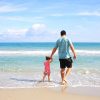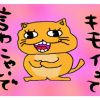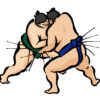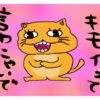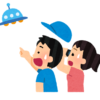What does “kishoi(きしょい)means?

“Kishoi” is often used by young people, but it was originally used in daily conversations in the Kansai region.
And then, this word gradually spread throughout the country in the 1990s.
Recently it is used as follows:
(Use only in casual situations)
Kisho!(きしょ!、キショ!)
Chou kishoi!(超きしょい)
Maji kishoi.(マジきしょい)
Gachi de kishoi(ガチできしょい)
Meccha kisyoi(めっちゃきしょい)
Kisyokawa(きしょかわ)
Let’s take a look at “kishoi”.
What does “kishoi / kisyoi” mean?
“Kishoi(きしょい)” is a shortened form of “Kishoku warui(きしょくわるい、気色悪い)” meaning “gross” “disgusting” or “sickening”.
It is a slang commonly used among young people.
It was mainly used in the Kansai region.
Many comedians from Kansai appear in Japanese TV programs. And of course they speak in the Kansai dialect, and “kishoi” has been often used. It was only natural that the viewers begin to start to copy the words their favorite comedians used.
And this word gradually spread throughout the country in the 1990s.
How “kishoi” is used
Because it is a word that expresses emotion, it is often pronounced short, as an exclamation, as follows:
Kisho(きしょ)
Kisyo!(きしょっ)
Kisyo—(きしょー)
In the Kansai region, it is often pronounced “kisshoi(きっしょい)”.
Sometimes “mecha(めちゃ)”, “meccha(めっちゃ)” and “messa(めっさ)” meaning “very” are combined.
Mecha kishoi/kisshoi(めちゃきしょい/めちゃきっしょい)
Meccha kishoi/kisshioi(めっちゃきしょい/めちゃきっしょい)
Messa kishoi/kisshoi(めっさきしょい/めっさきっしょい)
The use of “mecha” has spread to the Kanto region and is often used by young people and some adults.
“Cho/chou(チョー、超)”, “gachi(ガチ)”, and “maji (マジ)” have similar meanings.
“Kishokawa(きしょかわ)” is used for characters and pictures that you feel weird or creepy but it is somehow cute, or you like it or are curious about it.
“Kimoi(キモい)” is slightly different in meaning from “kishoi”, but it is used in almost the same way. Similarly, it is used with “cho / chou”, “gachi“ maji ”, etc., and there is also the word“ kimokawa(きもかわ)”.


